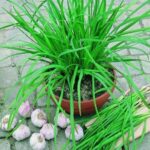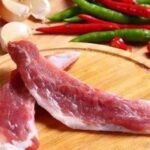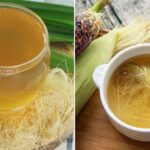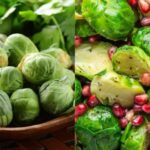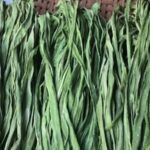Chives, though resembling green onions, possess a distinct and prominent aromatic quality. This herb is a common ingredient in soups, stir-fries, and particularly, wonton noodles. However, not everyone appreciates the flavor of chives.
This plant is easy to cultivate and rarely falls prey to pests. All you need is a few sprigs from a neighbor’s garden, and you can easily propagate them in a pot. Chives grow rapidly, adding lush greenery to your living space.
In traditional Chinese medicine, chives are known as Allium ramosum L., belonging to the onion family. Chives boast a myriad of medicinal properties, including the treatment of back pain, colds, constipation, skin infections, and worm infections.
Various parts of the chive plant, including the leaves, seeds, and roots, find their utility. In culinary applications, chive leaves and flower buds are not only delicious but also highly nutritious. Chive leaves are packed with vitamins and roughage, aiding in intestinal peristalsis, digestion, constipation relief, and the prevention of colorectal cancer. Additionally, chives help dissipate blood stasis, promote blood circulation, and detoxify the body.
Notable Benefits of Chives
Combating Intestinal Bacteria: Beyond its role as a familiar seasoning, chives are effective in treating coughs and sore throats. You can pound chive leaves and use the juice for gargling, or steam them with honey to soothe your throat. Chives contain valuable compounds such as sulfides, saponins, and bitter substances, particularly odorin, which acts as a natural antibiotic capable of eliminating Staphylococcus aureus and Bacillus coli. Fresh chive juice also exhibits intestinal antibacterial properties, treating sore throats and skin abscesses.
Lowering Blood Pressure and Cholesterol: Similar to garlic, chives contain allicin, a natural antibiotic that helps reduce blood pressure and prevents the formation of harmful cholesterol in the body. Furthermore, chives exhibit antibacterial and antifungal properties, aiding in the eradication of bacteria and fungi in the intestines, thus enhancing digestive efficiency.
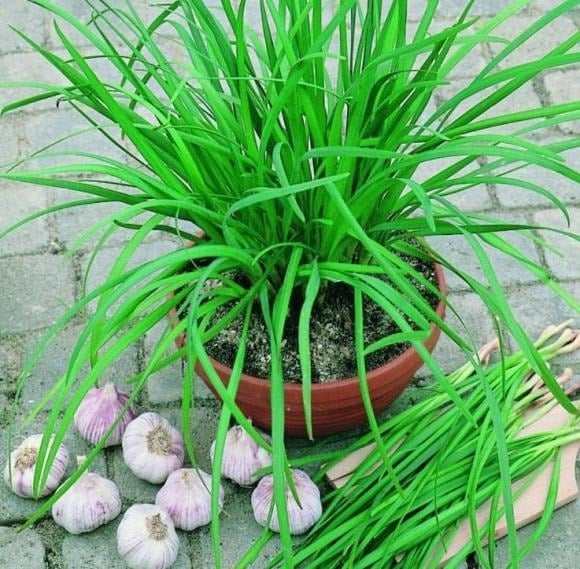
Boosting Digestion: In traditional Chinese medicine, chives are employed to stimulate digestion, addressing both constipation and diarrhea, while facilitating defecation. Chives benefit the liver and stomach and can alleviate constipation and stomach aches. Constituents such as protein, fat, calcium, iron, carotene, vitamin C, and dietary fiber present in chive leaves increase intestinal peristalsis, stimulate appetite, and are particularly beneficial for individuals suffering from constipation.
Cancer Prevention: Chives are rich in sulfur, carotene, and vitamin A, which impede the development and spread of cancerous cells in the body. Hence, incorporating chives into your daily diet serves as an effective cancer prevention strategy.
Enhancing Sexual Health: Chives bolster male sexual health, with their seeds often soaked in alcohol alongside other herbs like ginseng and deer antler to enhance virility. Additionally, fresh chive juice and chive soup are used to treat impotence, nocturnal emissions, and premature ejaculation. Women who consume ample amounts of chives may experience reduced back pain, improved urinary frequency, reduced leukorrhea, and enhanced libido.
Optimal Chive Consumption
Chive leaves have a pungent flavor and a warming effect, hence moderation is key. Approximately 100-200 grams per meal is recommended. Chives are commonly used as a seasoning or in stir-fries and soups.
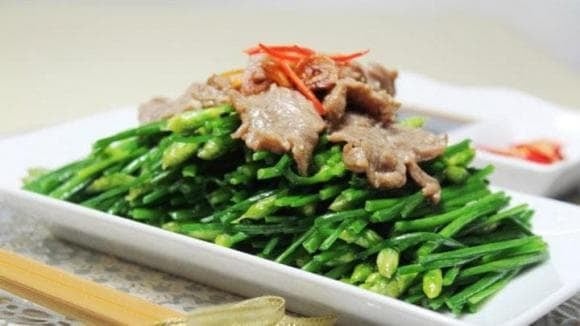
Individuals with digestive issues should refrain from consuming chive leaves and avoid combining their consumption with dairy products. Leftover chive soup should not be consumed the next day.
When preparing chives, it is crucial to chop them finely and stir-fry them over high heat, working swiftly to prevent the chives from disintegrating and losing their flavor, as well as to avoid the deterioration of sulfides present in the chives.
Moreover, individuals with eye problems, internal heat, weak stomachs, or abscesses should refrain from consuming chive leaves.
























